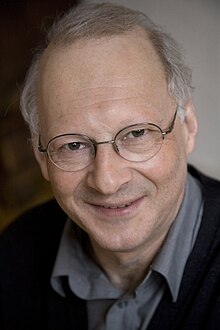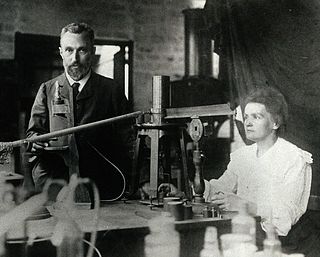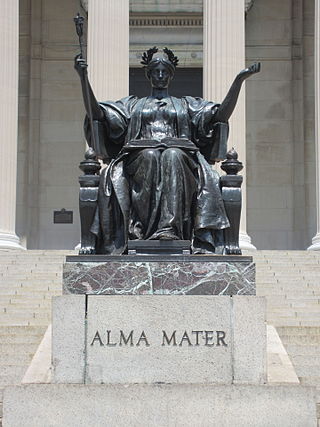
Hendrik Floris Cohen (born Haarlem, Netherlands, 1 July 1946) is a historian of science.

Hendrik Floris Cohen (born Haarlem, Netherlands, 1 July 1946) is a historian of science.
Cohen studied history at the University of Leiden, receiving a Ph.D. in 1974. He is a professor in the Comparative History of Science at the University of Utrecht. Cohen is the brother of politician Job Cohen and son of the historian Dolf Cohen.
In 2008, Cohen was awarded the Dutch "Eureka" prize for the best book of the year that makes science accessible to a wide audience. [1]
Chinese historiography is the study of the techniques and sources used by historians to develop the recorded history of China.
The history of science and technology (HST) is a field of history that examines the understanding of the natural world (science) and the ability to manipulate it (technology) at different points in time. This academic discipline also studies the cultural, economic, and political impacts of and contexts for scientific practices.

The history of science covers the development of science from ancient times to the present. It encompasses all three major branches of science: natural, social, and formal.

A paradigm shift, a concept in the philosophy of science introduced and brought into the common lexicon by the American physicist and philosopher Thomas Kuhn, is a fundamental change in the basic concepts and experimental practices of a scientific discipline. Even though Kuhn restricted the use of the term to the natural sciences, the concept of a paradigm shift has also been used in numerous non-scientific contexts to describe a profound change in a fundamental model or perception of events.

Science is a systematic endeavor that builds and organizes knowledge in the form of testable explanations and predictions about the universe.

A scientist is a person who researches to advance knowledge in an area of the natural sciences. By modern definitions, many scientists are required to have advanced degrees in an area of science and careers in various sectors of the economy such as academia, industry, government, and nonprofits pertaining to their discipline.

The relationship between religion and science involves discussions that interconnect the study of the natural world, history, philosophy, and theology. Even though the ancient and medieval worlds did not have conceptions resembling the modern understandings of "science" or of "religion", certain elements of modern ideas on the subject recur throughout history. The pair-structured phrases "religion and science" and "science and religion" first emerged in the literature during the 19th century. This coincided with the refining of "science" and of "religion" as distinct concepts in the preceding few centuries—partly due to professionalization of the sciences, the Protestant Reformation, colonization, and globalization. Since then the relationship between science and religion has been characterized in terms of "conflict", "harmony", "complexity", and "mutual independence", among others.

The Scientific Revolution was a series of events that marked the emergence of modern science during the early modern period, when developments in mathematics, physics, astronomy, biology and chemistry transformed the views of society about nature. The Scientific Revolution took place in Europe starting towards the second half of the Renaissance period, with the 1543 Nicolaus Copernicus publication De revolutionibus orbium coelestium often cited as its beginning.

Natural science is one of the branches of science concerned with the description, understanding and prediction of natural phenomena, based on empirical evidence from observation and experimentation. Mechanisms such as peer review and repeatability of findings are used to try to ensure the validity of scientific advances.
The historiography of science or the historiography of the history of science is the study of the history and methodology of the sub-discipline of history, known as the history of science, including its disciplinary aspects and practices and the study of its own historical development.
Edward Grant was an American historian of medieval science. He was named a Distinguished Professor in 1983. Other honors include the 1992 George Sarton Medal, for "a lifetime scholarly achievement" as an historian of science.

Theda Skocpol is an American sociologist and political scientist, who is currently the Victor S. Thomas Professor of Government and Sociology at Harvard University. She is a highly influential figure in both sociology and political science. She is best known as an advocate of the historical-institutional and comparative approaches, as well as her "state autonomy theory". She has written widely for both popular and academic audiences. She has been President of the American Political Science Association and the Social Science History Association.

Steven Shapin is an American historian and sociologist of science. He is the Franklin L. Ford Research Professor of the History of Science at Harvard University. He is considered one of the earliest scholars on the sociology of scientific knowledge, and is credited with creating new approaches. He has won many awards, including the 2014 George Sarton Medal of the History of Science Society for career contributions to the field.
The Merton thesis is an argument about the nature of early experimental science proposed by Robert K. Merton. Similar to Max Weber's famous claim on the link between Protestant work ethic and the capitalist economy, Merton argued for a similar positive correlation between the rise of Protestant Pietism and early experimental science. The Merton thesis has resulted in continuous debates.
In the history of ideas, the continuity thesis is the hypothesis that there was no radical discontinuity between the intellectual development of the Middle Ages and the developments in the Renaissance and early modern period. Thus the idea of an intellectual or scientific revolution following the Renaissance is, according to the continuity thesis, a myth. Some continuity theorists point to earlier intellectual revolutions occurring in the Middle Ages, usually referring to the European Renaissance of the 12th century as a sign of continuity. Despite the many points that have been brought up by proponents of the continuity thesis, a majority of scholars still support the traditional view of the Scientific Revolution occurring in the 16th and 17th centuries.
Reijer Hooykaas was a Dutch historian of science. He along with Eduard Jan Dijksterhuis were pioneers in professionalizing the history of science in the Netherlands. Hooykaas gave the prestigious Gifford Lectures at St. Andrews in 1975-77. H. Floris Cohen dedicated his historiographical text The Scientific Revolution to Hooykaas; its section on religion deals primarily with Hooykaas.

Science and Civilisation in China (1954–present) is an ongoing series of books about the history of science and technology in China published by Cambridge University Press. It was initiated and edited by British historian Joseph Needham (1900–1995). Needham was a well-respected scientist before undertaking this encyclopedia and was even responsible for the "S" in UNESCO. To date there have been seven volumes in twenty-seven books. The series was on the Modern Library Board's 100 Best Nonfiction books of the 20th century. Needham's work was the first of its kind to praise Chinese scientific contributions and provide their history and connection to global knowledge in contrast to eurocentric historiography.

A university is an institution of higher education and research which awards academic degrees in several academic disciplines. Universities typically offer both undergraduate and postgraduate programs. In the United States, the designation is reserved for colleges that have a graduate school.

Western culture, also known as Western civilization, Occidental culture, or Western society, is the heritage of social norms, ethical values, traditional customs, belief systems, political systems, artifacts and technologies of the Western world. The term applies beyond Europe to countries and cultures whose histories are strongly connected to Europe by immigration, colonization or influence. Western culture is most strongly influenced by Greco-Roman culture, Germanic culture, and Christian culture.

Most sources of knowledge available to early Christians were connected to pagan world-views. There were various opinions on how Christianity should regard pagan learning, which included its ideas about nature. For instance, among early Christian teachers, from Tertullian held a generally negative opinion of Greek philosophy, while Origen regarded it much more favourably and required his students to read nearly every work available to them.